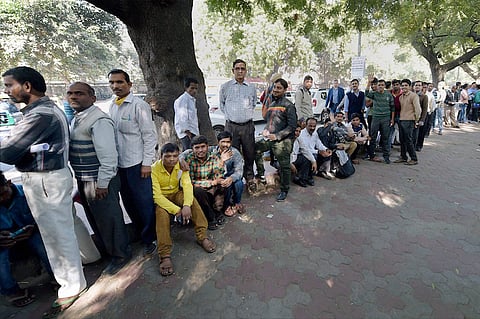

When Ashok (name changed) had a mild pain in the abdomen one fine morning, the 45-year-old, who would have usually ignored it as just a part of getting old, decided to get it checked. Otherwise healthy for a man of his age, Ashok thought it best to get a scan done, even though the pain was not major and there were no other major symptoms. But a week later, Ashok was stunned when he got the results – he had a huge tumour in his kidney.
The story of 77-year-old Murugan (name changed) has bigger lessons of caution for aging men. He had some of the usual symptoms of urological illnesses – urgency, high frequency, and slow flow in passing of urine. He went to a local doctor, who treated him with some medication and he felt fine. But the doctor also did a test called PSA, Prostate-Specific Antigen – which many doctors would not have done at this juncture. “The PSA results were a bit high, so the GP referred the case to me. I examined the prostate and felt that something was wrong, so I ordered an MRI. The MRI picked up lesions. The biopsy came back positive for prostate cancer,” recounts Dr Thirumalai Ganesan, Consultant Urologist at Apollo Hospitals in Chennai.
These cases are rare. Usually, the diagnoses would not have been arrived at so quickly because the patients or a General Physician would not have taken the symptoms seriously, says Dr Ganesan. “Someone like Murugan would have not got an MRI. We see on a regular basis that when such patients are asked to do a PSA screening, they just don’t want to,” Dr Ganesan says.
And it is not just patients, even GPs can take it lightly. “Sometimes PSA levels are only slightly high, but doctors just give them medication like antibiotics, presuming that it is only infection. We have seen cases where the patient has just taken medication, and the PSA has jumped up a lot higher in a few months and then there is panic,” he explains.
Dr Ganesan says that these cases are the rare outliers in the larger landscape, in which aging men usually tend to ignore abdominal pain as just ‘what happens when you get old’, and end up worsening the illness by not attending to it on time.
An eventuality you can prepare for
“See, prostate illnesses are an eventuality, like cataract. Whether you like it or not, once you cross 60-65 years of age, it is going to affect you,” he says, referring to men. “But why take it lightly? We can be prepared for it,” he cautions.
Prostate problems usually start after the age of 50, though in some cases, they can emerge earlier too. “Which is why they say urology is mostly geriatric medicine,” Dr Ganesan points out.
The three most common forms of prostate illnesses are – prostatitis, which is the inflammation or infection of the prostate; benign prostatic enlargement; and prostate cancer. The symptoms for all the three can be very similar. “Difficulty in passing urine, getting up at night to pass urine, passing urine too many times during the day, are the common symptoms people come with, for any of the prostate illnesses,” Dr Ganesan says. Other symptoms like blood in the urine, dribbling of urine and incomplete emptying are also seen.
Dr. Thirumalai Ganesan, Consultant Urologist, Apollo Hospitals
Prostatitis can happen at any age, it can even start at 30-35 years of age. Benign prostatic enlargement happens in almost every individual after 50 years. This causes blockage of the urinary passage. People with this illness take too long to pass urine or get up many times at night to pass urine. “Women come and tell us that their husbands are getting up too many times and they are not able to sleep,” Dr Ganesan says with a smile.
Myths of heat, cold, and age
One common misconception, the doctor says, is that people think that these symptoms are normal because of aging, or that it happens because the weather is too cold or too hot. “So, they just leave it, they are not bothered,” Dr Ganesan says. But the bigger myth than that is the one of too much body heat, “soodu”, causing blood in the urine.
“It is called Hematuria, they might notice one of two drops of blood in the urine. But they ignore it. In India, especially in TN, a common misconception is that it happens because of the heat. Yes, it could be a benign problem, but it can also be a very serious problem,” the doctor warns.
“What I want people to understand is that once you cross an age, just like a car, you need servicing. Your body is not going to go on the same way forever,” he explains.
Master health check-ups are a great way to monitor prostate health, Dr Ganesan says. “These days there are specific packages for each age group. People come and ask me if they are unnecessary – the answer is, that is the wrong question. Maybe some tests come back negative, but for certain age groups, certain tests have to be done. Some tests are capable of showing us signs of diseases which we will normally come to know only a later date,”
“Once you cross 40 or 50, when you start having urinary symptoms, at least go to a local doctor if not a specialist, to check if everything is fine. The doctor might just do a basic urine analysis and ultrasound, and if everything is fine then you don’t have to worry. At least once a year,” says Dr Ganesan.
This article has been created in association with Apollo Hospitals by TNM Marquee.